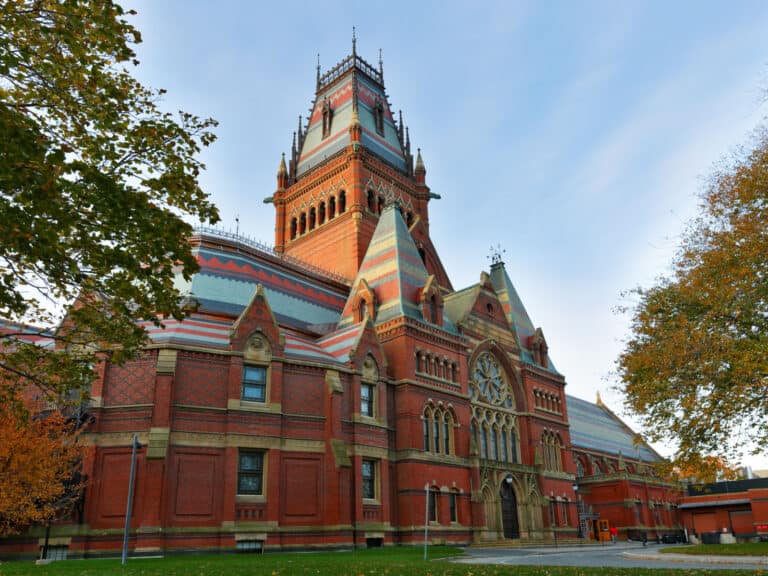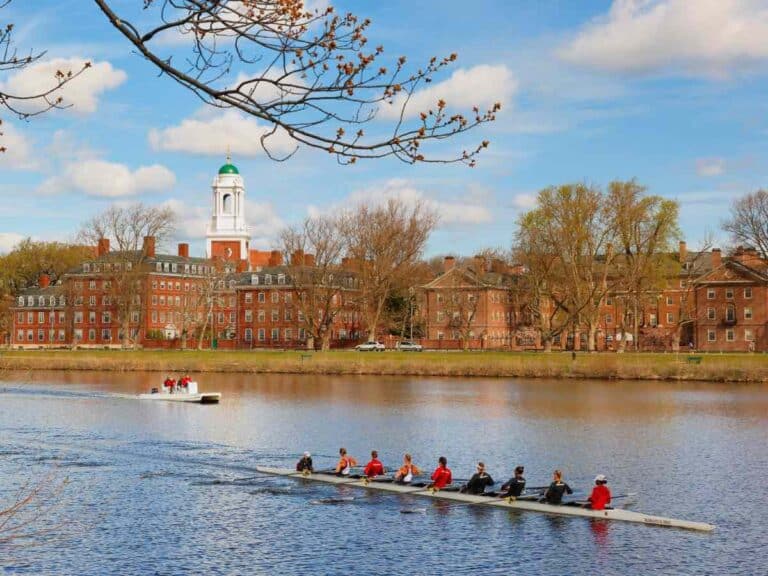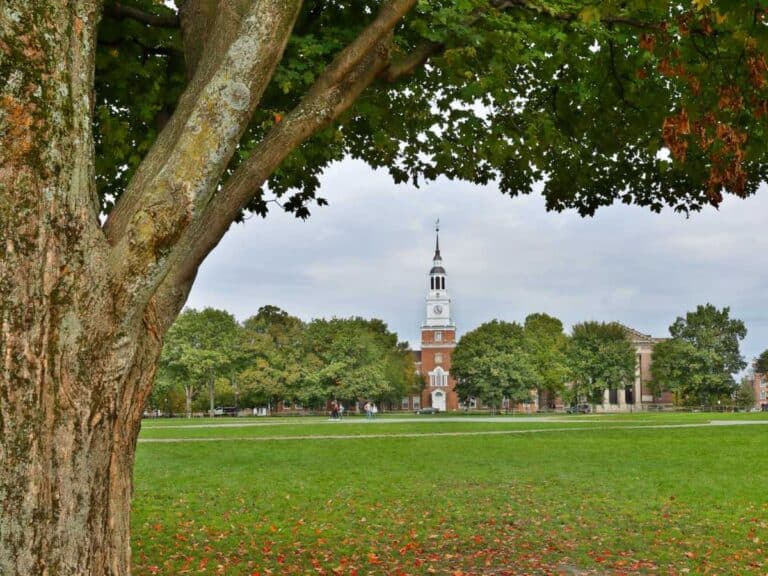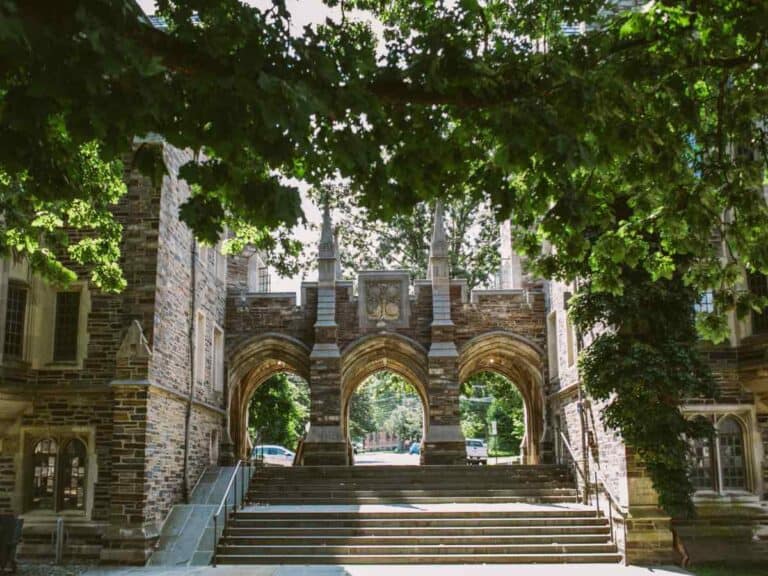How Many People Get Into Harvard?
Everyone knows that Harvard University is one of the most prestigious schools not only in the US but all over the planet. It’s no secret, too, that it’s one of the most selective.
And sure enough, many graduating high school students who are in the college list-building process get alarmed the minute they check out Harvard’s acceptance rate.
Only 5% of freshmen applicants end up receiving an offer to enroll at Harvard University. According to the school’s latest Common Data Set, out of the 40,248 people who applied as first-time, first-year students, only a very small fraction were accepted — 2,012 of them received acceptance letters.
Find the figures given above daunting? Read on.
Below, we will talk about practically everything you need to know about just how many people get into Harvard. Once you are through reading this article, you will have a much better idea of whether or not you should add the Ivy League school to your college list in the hope of earning a degree from it after four years.
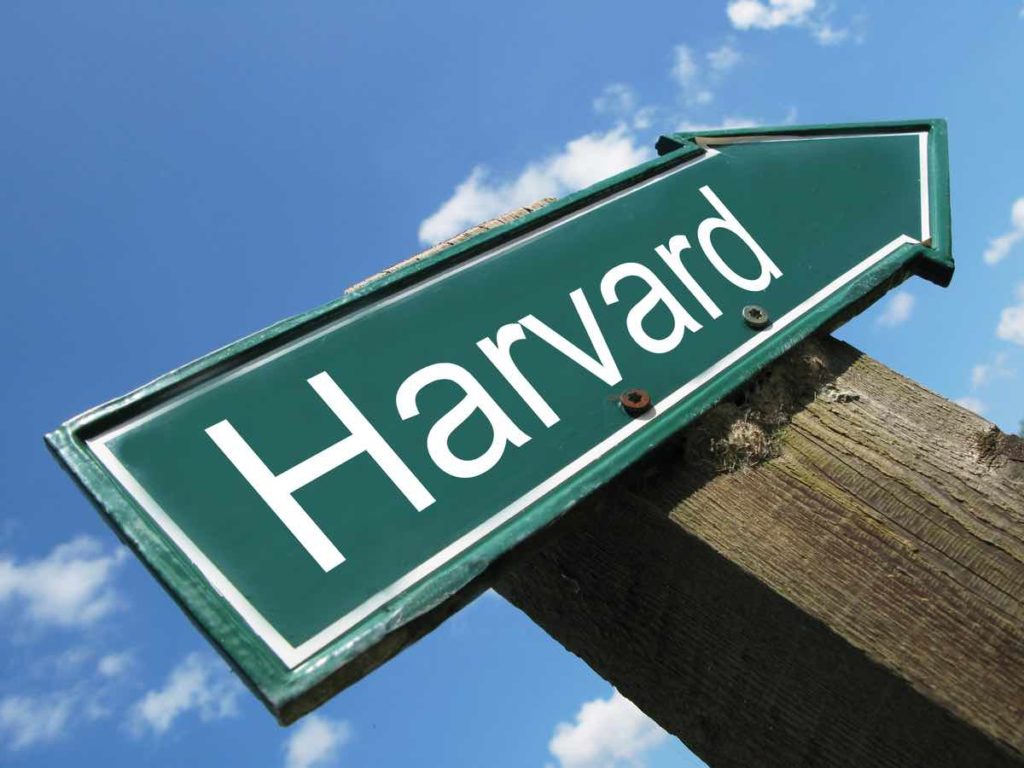
What is the Enrollment Like at Harvard?
Based on Harvard University’s latest Common Data Set, the total number of students attending it is 19,218. Undergraduate students, amounting to 5,222, make up 27% of its population. Meanwhile, graduate students, with a total of 13,996, make up 73% of its studentry. Most admits are whites and Asians.
There are many factors to consider when figuring out if an institution is a good fit or otherwise. One of the many things graduating high school teens check out is the student population of which they could be a part.
For the academic year 2020 to 2021, more than 40,000 first-time, first-year students applied to Harvard.
It seems that the Ivy League tends to attract slightly more men than women. That’s because, for the said academic year, 20,212 of first-time, first-year applicants were females. On the other hand, 20,036 were men. But since Harvard University is a highly selective school, only a very small fraction of them got accepted.
Let’s take a look at these figures in table form, but this time including everyone attending Harvard University, both full-time and part-time undergraduate and graduate students:
| DEGREE | MALES | FEMALES | TOTAL |
| Undergraduate | 2,558 | 2,664 | 5,222 |
| Graduate | 6,643 | 7,353 | 13,996 |
| TOTAL | 9,201 | 10,017 | 19,218 |
And speaking of full-time and part-time students, here’s a table demonstrating their numbers:
| DEGREE | FULL-TIME | PART-TIME | TOTAL |
| Undergraduate | 5,198 | 24 | 5,222 |
| Graduate | 12,606 | 1,390 | 13,996 |
| TOTAL | 17,804 | 1,414 | 19,218 |
The total number of first-time, first-year applicants for the same academic year was 40,248. The total number of admitted students was 2,015 only.
Doing the math, only 5% of them received acceptance letters — 5% is Harvard’s acceptance rate.
Harvard University is a diverse institution, which makes it great for students who value not only a quality degree but also diversity.
As a matter of fact, it’s #5 in Most Diverse Colleges in Massachusetts and #30 in Most Diverse Colleges in America by Niche. On the other hand, College Factual ranks Harvard #5 in Most Diverse Colleges in the United States.
Below, you will come across the breakdown of Harvard University’s enrollment by racial or ethnic category. Keep in mind that the figures involve not only first-time, first-year students but all undergraduates:
| RACE/ETHNICITY | TOTAL | PERCENTAGE |
| White | 1,730 | 33.13% |
| Asian | 1,186 | 22.71% |
| Hispanic or Latino | 629 | 12.05% |
| Non-resident aliens | 626 | 12.00% |
| African-American | 590 | 11.30% |
| Two or more races | 371 | 7.10% |
| Unknown | 74 | 1.41% |
| Native American or Alaska Native | 12 | 0.23% |
| Native Hawaiian or Pacific Islander | 4 | 0.07% |
| TOTAL | 5,222 | 100% |
It’s common knowledge that Harvard is one of the eight Ivy League schools. The group was formed in the mid-50s by various colleges and universities with common interests in both academics and athletics.
Speaking of which, Harvard University is one of the top schools for students who are into sports. Sure enough, according to Niche, it’s #16 in Best Colleges for Student Athletes in America and #1 in Best Colleges for Student Athletes in Massachusetts.
And by the way, Harvard itself says that almost 80% of its students partake in some form of athletics.
Based on the latest data from the website of The Harvard Crimson, which is the official daily student newspaper of Harvard University, only 10.4% of student athletes at the Ivy League are recruited athletes. On the other hand, the rest of the school’s student athletes, amounting to 89.6%, are non-recruited.
Curious as to how many transferees apply to the elite school and how many of them end up accepted?
Still based on the academic year 2020 to 2021, a total of 1,376 applied as transferees to Harvard University. Since only 17 of them got acceptance letters, the acceptance rate for transferees at Harvard is only 1.24%.
As of this writing, over 36% of students attending Harvard are legacy students. If a family member of yours once attended the school, it is said that you are five times more likely to get accepted.
Meanwhile, around 20% of Harvard’s freshmen students are first-generation.
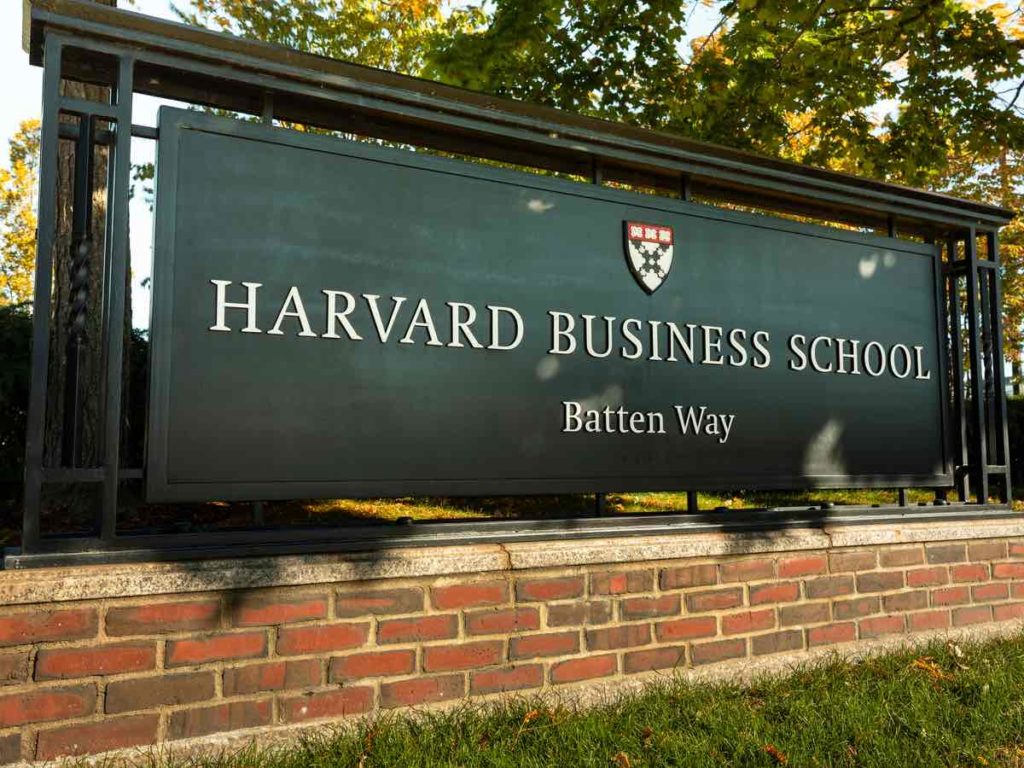
What are the Important Admissions Factors at Harvard?
Various academic and non-academic admissions factors considered by Harvard University have equal weightings. They include high school rigor, GPA, test score, extracurricular activities and volunteer work. Surprisingly, a selective school like Harvard doesn’t consider class rank an admissions factor.
It’s true that checking out a college or university’s acceptance rate can help you guesstimate your chances of gaining admission into it — the higher the number you see, the better your fighting chance.
But the acceptance rate is not the only one you should inspect when building a college list.
Knowing the different admissions factors at the school you are eyeing is also a great idea. This is most especially true if the institution has a holistic admissions policy, the kind that considers various academic and non-academic aspects of applicants, not just their high school GPAs and SAT or ACT scores.
The admissions officers at Harvard University take into account an assortment of things when evaluating applicants. They can be divided into two groups: academic and non-academic.
When filling out the Common Data Set, colleges and universities have to indicate the weightings of all available admissions factors. Each factor can be very important, important or considered. If a factor isn’t a part of the admissions process, schools have to mark it as not considered.
Here are the different academic admissions factors at Harvard and their relative importance:
- Academic rigor – considered
- High school GPA – considered
- Standardized test scores – considered
- Admissions essay – considered
- Recommendation letters – considered
As mentioned earlier, Harvard University does not include class rank in the admissions process. This means that it doesn’t matter whether you are in the top 5% of your high school graduating class or in the bottom 50%.
And also, there is no need to feel disadvantaged if your high school does not have any ranking system.
But still, it’s important to keep in mind that, when applying to the Ivy League, you will be competing for a spot against a lot of bright high school students. So, in other words, being one of the best in your class is a huge plus.
Take a look at this table showing the percentage of freshmen students accepted into Harvard according to class rank:
| CLASS RANK | PERCENTAGE |
| Top 10% of high school graduating class | 94.00% |
| Top 25% of high school graduating class | 98.00% |
| Top 50% of high school graduating class | 99.60% |
| Bottom 50% of high school graduating class | 0.40% |
| Bottom 25% of high school graduating class | 0.20% |
Now, let’s check out the various non-academic admissions factors at Harvard and the relative importance of each:
- Interview – considered
- Extracurricular activities – considered
- Talent or ability – considered
- Personal qualities – considered
- First-generation – considered
- Alumni member relations – considered
- Geographical residence – considered
- Race or ethnicity – considered
- Volunteer work – considered
- Work experience – considered
Harvard University’s admissions officers do not consider at all the following non-academic factors: state residency, religious affiliation and demonstrated interest.
Is Early Action Acceptance Rate Higher at Harvard?
At Harvard University, the acceptance rate for freshmen applicants who apply Early Action is slightly higher. From the regular admission acceptance rate of 5%, it climbs to 8%. The increase in acceptance rate for Early Action applicants is due to a generally stronger and competitive applicant pool.
They always say that the early bird gets the early worm. Sure enough, more graduating high school students who apply earlier to Harvard end up getting much-coveted acceptance letters than those who apply later.
A 3% increase in acceptance rate doesn’t seem a lot. But for a Harvard aspirant, it means everything!
Higher acceptance rates for early applicants are quite common. Just take a look at some colleges and universities where your admission chances are higher if you apply ahead of everyone else:
- Amherst College
- Barnard College
- Bowdoin College
- Bucknell University
- College of the Holy Cross
- Dartmouth College
- Duke University
- Hamilton College
- Harvey Mudd College
- Johns Hopkins University
- Northeastern University
- Pitzer College
- Pomona College
- Smith College
- Swarthmore College
- University of Pennsylvania
- Vassar College
- Wellesley College
- Wesleyan University
- Williams College
A few reasons exist why early acceptance rates are higher than regular acceptance rates at many institutions.
First, all slots that need to be filled are still available, and it’s not unlikely for admissions officers to give every good application they encounter an immediate thumbs-up. Second, most early applicants are confident with their applications, which means that it’s very much likely for them to get accepted no matter when they apply.
Last but not least, applying Early Decision or Early Action is a form of demonstrated interest, which is a non-academic admissions factor at many colleges and universities.
It was mentioned earlier that Harvard University’s admissions officers do not consider demonstrated interest.
Needless to say, just in case you get an offer to enroll at the Ivy League after applying early, you can be sure it’s not due to pointing out that Harvard is your top-choice school but because your application is top-notch.
And you can be certain, too, that yours is one of the best as the early applicant pool is usually teeming with solid applications.
As of this writing, of the 9,406 students who applied Early Action, only 8% got accepted into Harvard. The early acceptance rate is slightly higher and the applicant count is slightly lower than the previous year.
This does not mean, however, that applying earlier to the prestigious school ahead of your high school classmates will guarantee you an offer to enroll. No matter the admission plan, the fact remains that, to be accepted into Harvard University, having a strong application is a must.
Otherwise, you can expect a denial to come your way, even if you are the very first person to apply to it.
Make sure that you don’t forget these important dates, especially if you are a Harvard aspirant and want to make sure that your application will make it to the school’s admissions office on time:
| ADMISSION PLAN | DEADLINE | DECISION NOTIFICATION |
| Early Action | 1-Nov | Mid-December |
| Regular Decision | 1-Jan | End of March |
What are the GPAs and Test Scores of Harvard Students?
There are no absolute minimum GPA and test score requirements at Harvard University. However, since the school is competitive, many admits have strong academic profiles. As a matter of fact, the average high school GPA of more than 75% of admitted first-time, first-year students is a perfect 4.0.
We mentioned earlier that two academic admissions factors considered at Harvard are GPA and test scores.
Needless to say, it’s a must for your high school GPA and SAT or ACT score to be impressive if you want to grab the attention of the Ivy League’s admissions officers and inspire them to send you an acceptance letter.
It’s true that there is no minimum GPA requirement undergraduate applicants at Harvard University have to meet.
But it goes without saying that having a high GPA is a must for anyone who is expecting to be a part of the 5% admitted students. Having a high school GPA of 4.0 can make your application a complete standout.
Here’s a table showing the percentage of admits at Harvard and the range of their high school GPAs:
| GPA RANGE | PERCENT |
| 4 | 75.76% |
| 3.75 to 3.99 | 18.02% |
| 3.50 to 3.74 | 4.00% |
| 3.25 to 3.49 | 1.79% |
| 3.00 to 3.24 | 0.32% |
| 2.50 to 2.99 | 0.11% |
| 2.0 to 2.49 | 0.00% |
| 1.0 to 1.99 | 0.00% |
| Below 1.0 | 0.00% |
By the way, of all the first-time, first-year students admitted into Harvard University, well, at least as of the academic year 2020 to 2021, 95% submitted their high school GPAs during the admissions process.
Like the GPA, the standardized test scores of Harvard aspirants do not have to be at a certain level.
So, in other words, you can apply to the prestigious school no matter your SAT or ACT score. But, as always, keep in mind that since the goal is to gain admission into a competitive school, a high test score can give you the edge you need.
Want to have an idea of whether your test score is enough to impress the school’s admissions officers?
All you have to do is check out the standardized test scores of students who apply to Harvard University and wind up getting an offer to enroll.
Doing so can help lower your anxiety levels while waiting for a response from the school as well as minimize your frustration the minute admissions decisions come out.
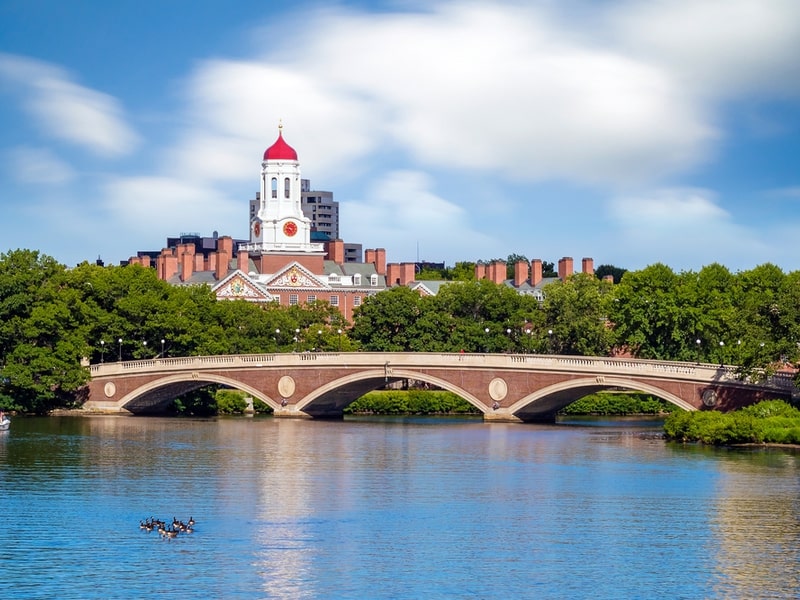
For the academic year 2020 to 2021, the majority of first-time, first-year students who submitted their SAT scores (72%) and got accepted into Harvard had a composite SAT score range of 1460 to 1570.
On the other hand, those who submitted their ACT scores (45%) had a composite ACT score range of 33 to 35.
Having a composite SAT score closer to or higher than 1570 or a composite ACT score closer to or higher than 35, needless to say, can increase your chances of ending up attending Harvard University.
What are Hooks in the Admissions Process at Harvard?
Hooks that can help increase an applicant’s chances of getting accepted into Harvard University include alumni connections, athleticism, being of a certain race or ethnicity, having popularity, and relation to a generous donor. For best results, a hook should be accompanied by a solid application.
Above, we talked about the different admissions factors, academic and non-academic alike, considered by the admissions officers at Harvard University.
It goes without saying that acing those factors can make an acceptance letter easier to obtain.
Besides the different admissions factors mentioned earlier, there are a few other things that can help boost your chances of becoming a Harvard student. They are referred to as hooks. Simply put, a hook is anything that can make an applicant desirable in the eyes of a school’s admissions officers — a trait, feature, talent, quality, etc.
Some hooks are innate, which is why they are referred to as inherent hooks. Needless to say, there is no need for a person to try to obtain it as he or she is already born with it.
Then there are also self-developed hooks, which one has to cultivate and foster.
Below are some of the most well-known hooks in the admissions process at Harvard University as well as many other institutions. Having one or more of them can make your application pop out from the rest:
- Alumni connections. The more closely related you are to a former Harvard student, such as your mother or father, the more likely you are to get welcomed to the campus.
- Faculty relations. Related to a Harvard University employee rather than an alumni member? Then you can enjoy a 50/50 chance of getting an offer to enroll at the elite school.
- Athleticism. Besides academics, athletics is also something that the eight Ivy League schools shine in, which is why being a phenomenal student athlete is a plus in the admissions process at Harvard.
- Ethnicity. One of the things that make colleges and universities popular, admired and respected is a diverse student body, and it’s due to this why being of a certain ethnicity is a hook.
- Popularity. Being a well-known individual such as a movie star, musician, politician or a young entrepreneur might make an acceptance letter from Harvard less elusive.
- Affiliation with a donor. To considerably boost your chances of getting admitted into Harvard, a family member of yours would have to give the school a generous donation, like a building or piece of land.
Hooks make it easier for some applicants to get accepted into Harvard University. Needless to say, it makes it even harder for those without hooks to gain admission into the Ivy League.
This does not mean, however, hooks in the admissions process at Harvard are a bad thing. As a matter of fact, the school’s studentry owes it to hooks why it’s one of the most diverse not only in Massachusetts but in the country, too. This allows underrepresented students to find it more agreeable to earn a degree from Harvard.
Just Before You Apply to Harvard
When building a college list, there are many different factors to take into account. It’s a good idea for someone who is interested in applying to Harvard University to get to know first various admissions-related matters about the Ivy League, including the number as well as which type of people get into Harvard.
Feel free to use all the pieces of information you came across above to determine whether or not the addition of Harvard to your college list can make it more balanced and practical.
Disclaimer: The views and opinions expressed in this article are those of the authors and do not necessarily represent those of the College Reality Check.
